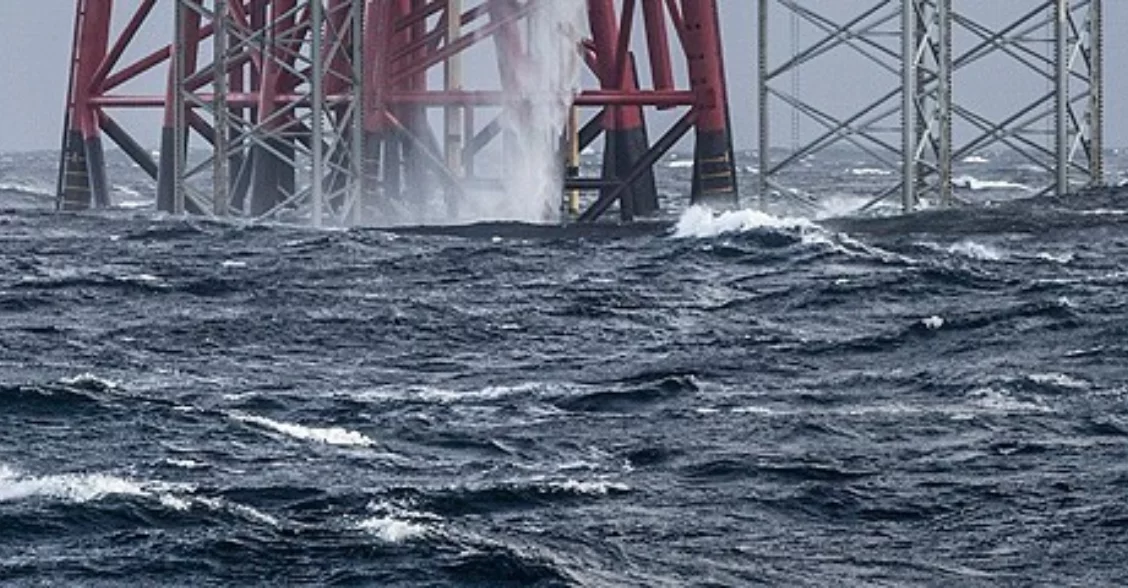A new market worth several billions is expected to develop as worn-out oil platforms face decommissioning over the next few decades. But the battle for market share will be fierce. So far, Norway and the United Kingdom are in the lead.
Forty years after the first Danish oil fields came into operation, many oil and gas installations across the British, Norwegian and Danish fields in the North Sea are ripe for retirement. They have a life expectancy of 30–40 years, and the average life of the North Sea installations is already 23 years. The oldest installations are more than 40 years old. As a result, decommissioning, i.e. demolition and recycling, of North Sea platforms represents a new business potential involving billions of Danish kroner.
The Danish decommissioning market is still in its early stages. In the United Kingdom, Norway and the USA, however, decommissioning is already a huge business area. In 2011, international consultancy firms Deloitte and Douglas Westwood forecasted that decommissioning would gain momentum in 2016–2031 and that it would represent a market worth DKK 420 billion. According to Wood Mackensie, another consultancy firm, decommissioning of the Danish installations alone represents a value of at least DKK 39 billion.
Danish union anticipates 1,400 new jobs
Dansk Metal (the Danish Metalworkers’ Union) has also assessed the market potential. The union, which represents 108,000 metalworkers, smiths and mechanics, says that as many as 600 North Sea platforms are likely to be scrapped over the next 10–20 years.
“Decommissioning will undoubtedly be a huge market in future, and Denmark is ready to take its share of that market,” says Allan Lyngsø Madsen, chief economist at Dansk Metal.
“Of the 600 North Sea platforms, which face scrapping over the coming decades, we believe that about two-thirds can be handled in Denmark. Also, based on Denmark’s track record in the field, we believe that this will create an annual average of 1,400 new Danish jobs in the next decade.”
Fierce international competition for market share
That Denmark should have this vast market all to itself is obviously not a given. On the contrary, fierce international competition in the field should be expected according to Allan Lyngsø.
The Port of Esbjerg’s COO Jesper Bank agrees. Despite seeing interesting market opportunities, he does not consider it realistic that Denmark will win two-thirds of the market.
“The UK and Norway have already taken a big lead, because they have the right legislation in place. Decommissioning is not a market that emerges by itself: it has to be promoted by public authorities and operators. In that respect, it is very much like offshore wind,” says Jesper Bank, who attended a major conference on decommissioning in Houston in March.
“We should also expect to see competition from US companies when the European market for decommissioning starts to grow. This doesn’t mean that Denmark won’t get a share of the market, but it is far from certain that we will capture more than half of the market.”
Jesper Bank also notes a certain degree of uncertainty with respect to the time horizon for decommissioning the existing platforms:
“According to the forecasts we rely on, about 175 installations are scheduled to be brought in from the North Sea for scrapping between 2011 and 2021. However, with the current focus on extending the life of platforms means that this figure will probably be smaller than expected in coming years,” he explains.
Good port conditions and special expertise is crucial
Having the right infrastructure will also be a crucial factor if Denmark is to win a share of the decommissioning market. Primarily, this means adequate space and access to and from the ports in question:
“It must be possible to haul the platforms into the ports, and there are a number of ports in Denmark already able to handle them. Once the platforms have been brought into a port, there also has to be the proper infrastructure, along with sub-contractors specialised in recycling,” says Allan Lyngsø Madsen.
Decommissioning also requires a high level of expertise. Jesper Bank emphasises that there is a need for engineers specialised in the decommissioning of platforms, project management teams, and engineers experienced in planning the complicated scrapping process, along with the construction engineers, welders and mechanics needed for the dismantling work.
Go to overview

